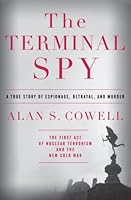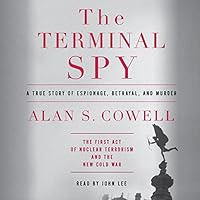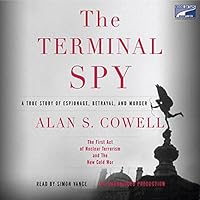- Welcome to FictionDB, Guest
- | My Account
- | Help

The Terminal Spy — Alan S. Cowell
buy the book from amazon
Paperback editions:
Hardcover editions:
eBook editions:
Audio editions:
Large Print editions:
Description
In this breathtaking true crime narrative, an award-winning journalist exposes the troubling truth behind the world's first act of nuclear terrorism.
On November 1, 2006, Alexander Litvinenko sipped tea in London's Millennium Hotel. Hours later, the Russian émigré and former intelligence officer, who was sharply critical of Russian president Vladimir Putin, fell ill and within days was rushed to the hospital. Fatally poisoned by a rare radioactive isotope slipped into his drink, Litvinenko issued a dramatic deathbed statement accusing Putin himself of engineering his murder.
Who was Alexander Litvinenko? What had happened in Russia since the end of the Cold War to make his life there untenable? And how did he really die?
The life of Alexander Litvinenko culminated in an event that rang alarm bells among Western governments at the ease with which radioactive materials were deployed in a major Western capital to commit a unique crime. It also evoked a wide range of other issues: Russia's lurch to authoritarianism, the return of the KGB to the Kremlin, the perils of a new Cold War driven by the oil riches of Russia and Vladimir Putin's thirst for power.
Alan S. Cowell, former London Bureau Chief of the New York Times, has written the definitive story of this assassination and the profound international implications of this first act of nuclear terrorism. A masterful work of investigative reporting, The Terminal Spy offers unprecedented insight into one of the most chilling true stories of our time.
CERTAIN CONTENT THAT APPEARS ON THIS PAGE COMES FROM AMAZON. THIS CONTENT IS PROVIDED ‘AS IS’ AND IS SUBJECT TO CHANGE OR REMOVAL AT ANY TIME.




 Amazon UK
Amazon UK